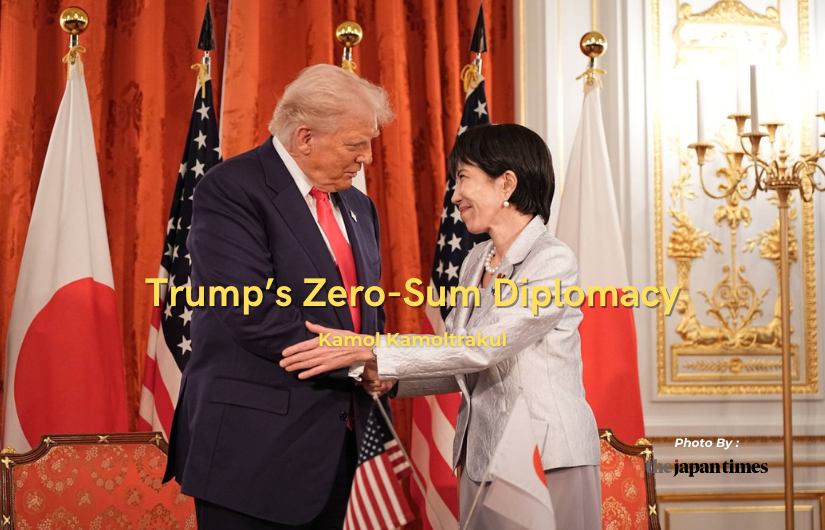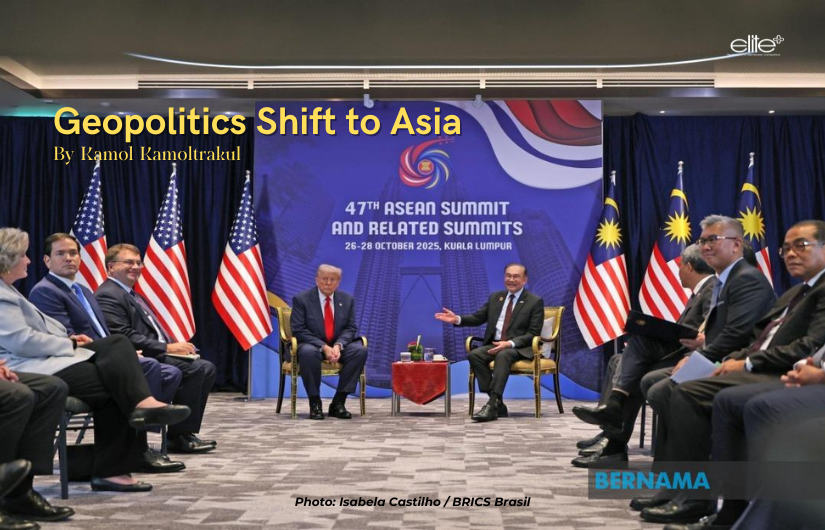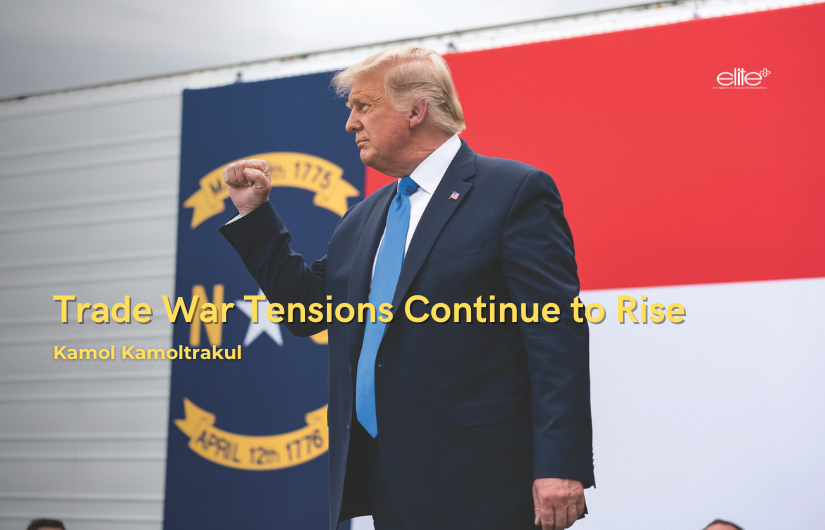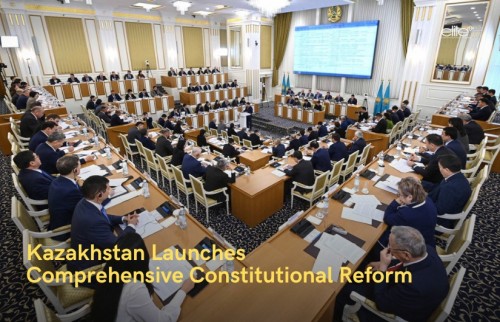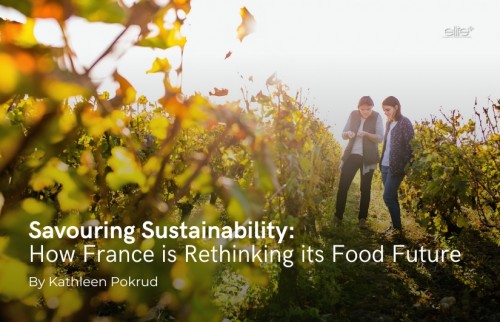Trump Claims to have Won the TikTok Deal with China
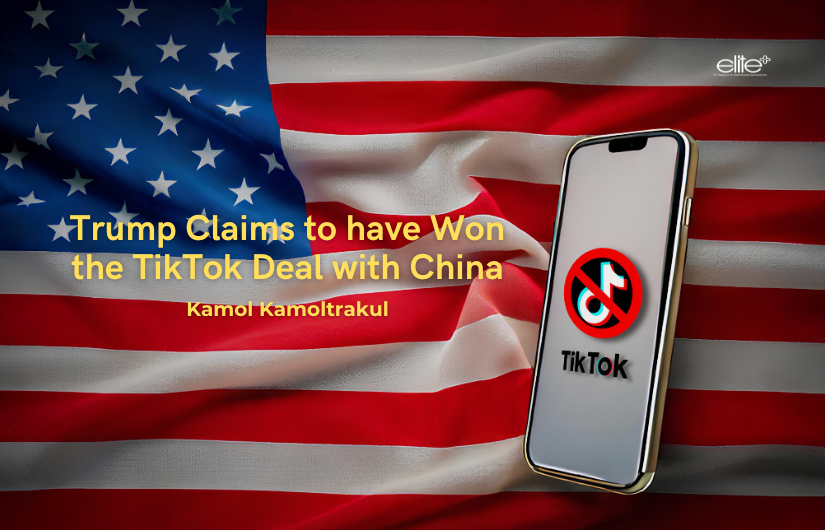
The stakes are high for both China and the US when it comes to the TikTok applications ownership. More than a business deal, it has political consequences. It is said by some that China sees the app as a valuable asset it does not want to relinquish, especially its proprietary algorithm. Finalizing a deal regarding TikTok in the US is complicated due to persistent national security concerns, the resistance of its Chinese parent company to sell its core technology and conflicting political and economic interests between the US and China.
China's control of the algorithm is said to have been the "secret sauce" behind TikTok's success, and Chinese law restricts the sale or export of similar technology. This is why ByteDance indicated it would not sell its core technology.
In the past, President Trump had shared the view, “Chinese control of TikTok was an intolerable national security risk.” However, Tiktok is important because it is an enormously popular social media platform that has about 170 million US users. TikTok is a social media platform designed for creating, editing and sharing short videos between 15 seconds and three minutes in length, and it provides songs and sounds as well as filters and special effects that users can add to their videos.
TikTok's success with its highly personalized "For You Page" has influenced other social media platforms to adopt similar features. It has redefined how content is consumed and created, making short, engaging and easily shareable videos the standard.
The app's addictive algorithm keeps users highly engaged, leading to a significant amount of time spent on the platform. This makes it a valuable space for advertisers and content creators.
TikTok's importance stems from its massive user base, its innovative format and its influence on a wide range of industries. It's not just a platform for entertainment; it's a significant force in culture, commerce and even information dissemination.
TikTok also has a profound impact on trends, music and social issues. It has become a primary source of information and a tool for social activism, particularly for younger generations. The platform has become a crucial marketing tool for brands of all sizes. Its algorithm and short-form video format allow for a unique style of advertising that is often more engaging and authentic than traditional methods, and it provides business opportunities and promising income from advertising.
As of 2025, with 5.31 billion social media users worldwide – accounting for 63.9% of the global population – social media platforms have become necessary hubs for gathering information, connecting people, watching and sharing videos and listening and producing music as well as advertising.
TikTok ranked fifth in the top ten ranking of social media apps by users worldwide this year, including Facebook (3.07 billion), YouTube (2.53 billion), Instagram (2 billion), and WhatsApp (2 billion). Other major platforms in the list are WeChat (1.38 billion), Telegram (950 million), Facebook Messenger (947 million), Snapchat (850 Million Users) and Douyin (766 Million Users).
The FBI and US Department of Justice (DOJ) were investigating TikTok for allegations that it inappropriately accessed American users’ data. They worried that the Chinese government may use data of the app, owned by the company ByteDance, for political spying purposes.
Hence, the US government banned the app on government devices in 2022 and on any device used by a government official in 2023. A majority of states have also banned TikTok on government devices and networks. Only 12 states and Washington, DC, did not have a ban of TikTok on government devices as of 16 December 2024.
Beyond US borders, TikTok was banned on NATO-issued devices on 31 March 2023. Australia, Canada, Denmark, the European Union, France, Latvia, the Netherlands, New Zealand, Norway and Taiwan have also banned TikTok from government devices. Bangladesh, Belgium, Indonesia and Pakistan temporarily banned the social media app while Afghanistan (2022) and India (2020) have banned the platform altogether.
The Trump administration has also been concerned that China might use its control over the platform to promote posts sowing doubts about democracy or pushing pro-China and anti-American views. In addition, US officials have been worried that TikTok's owner, ByteDance, could be pressured by the Chinese government to hand over sensitive data on its 170 million American users.
Lawmakers have feared that the platform's powerful algorithm could be influenced by the Chinese Communist Party to promote propaganda or suppress information, shaping the content US users see. However, those concerns, or accusations, have always been denied by ByteDance.
Even still, the US Congress went ahead to enact a law in April 2024 that banned the platform to prevent the Chinese government from gaining access to TikTok users’ personal data.
This law prohibits the distribution of TikTok as long as it has ownership based in a country designated as a “foreign adversary”. The measure effectively banned TikTok from operating in the United States unless its owner, ByteDance, sold it to an American entity by 19 January 2025.
The text of the law did, however, give President Trump the ability to grant a 1-time extension of not more than 90 days before enforcing the ban – if there was “significant progress” on divesting the app from its Chinese ownership. Since then, Trump has postponed the enactment many times up until now as he has just announced the United States will take control over TikTok’s algorithm in the acquisition of the social media platform’s US operations as a group of US investors will take ownership of most of the company’s US assets.
“Oracle, Larry Ellison, Michael Dell and Lachlan and Rupert Murdoch will be a part of the group to take over TikTok’s algorithm in the acquisition of the social media platform’s US operations,” Trump said.
ByteDance would hold less than 20% of the stock and have one board member among the seven of the joint venture controlling TikTok in America.
According to Xinhua, Xi did tell Trump that China “respects the will of firms and welcomes companies to conduct business negotiations on the basis of market rules to reach a solution consistent with Chinese laws and regulations while balancing interests,” but this still has left some uncertainties as his statement did not spell out the terms of an agreement between the leaders on TikTok.
The deal for the app could be a breakthrough, at least for now, as it paves the way for the next round of trade talks between the world’s two largest economies.
While some say Trump got what he wanted and won the first round of the negotiations with Xi, others say that Xi and China will come out ahead in the long run as bigger issues, particularly tariffs, become the focus of the trade talks.

Kamol Kamoltrakul 48 Posts
Visiting lecturer: Navy Academy Institution, NIDA, School of Governor, Ministry of Interior, Chulalongkorn University, Former Lecturer, ABAC Honorary Advisor Trade and Industry Committee Senate. Senior advisor, Standing Committee on Finance and Banking, The House of Representative. Former Advisor to the Minister of Interior Board Member of ThaiPBS Board Member Of Thai Consumer Council Columnist : Prachachart Business Weekly, Matichon Weekly, Khom Chad Luke Daily Former Program Director Asian Forum for Human Rights and Development ( FORUM-ASIA).





